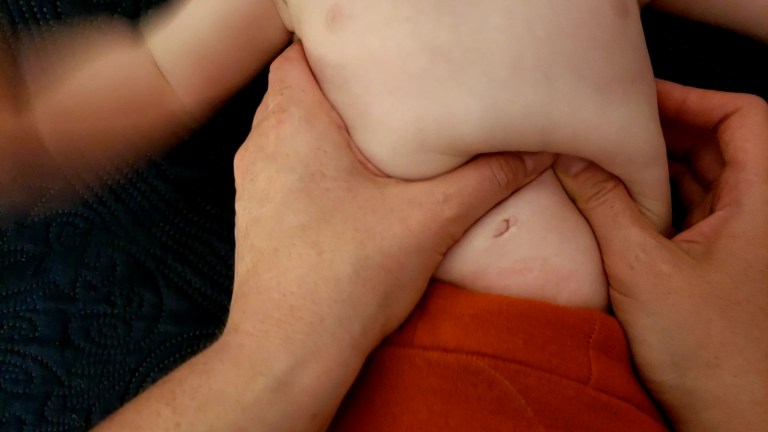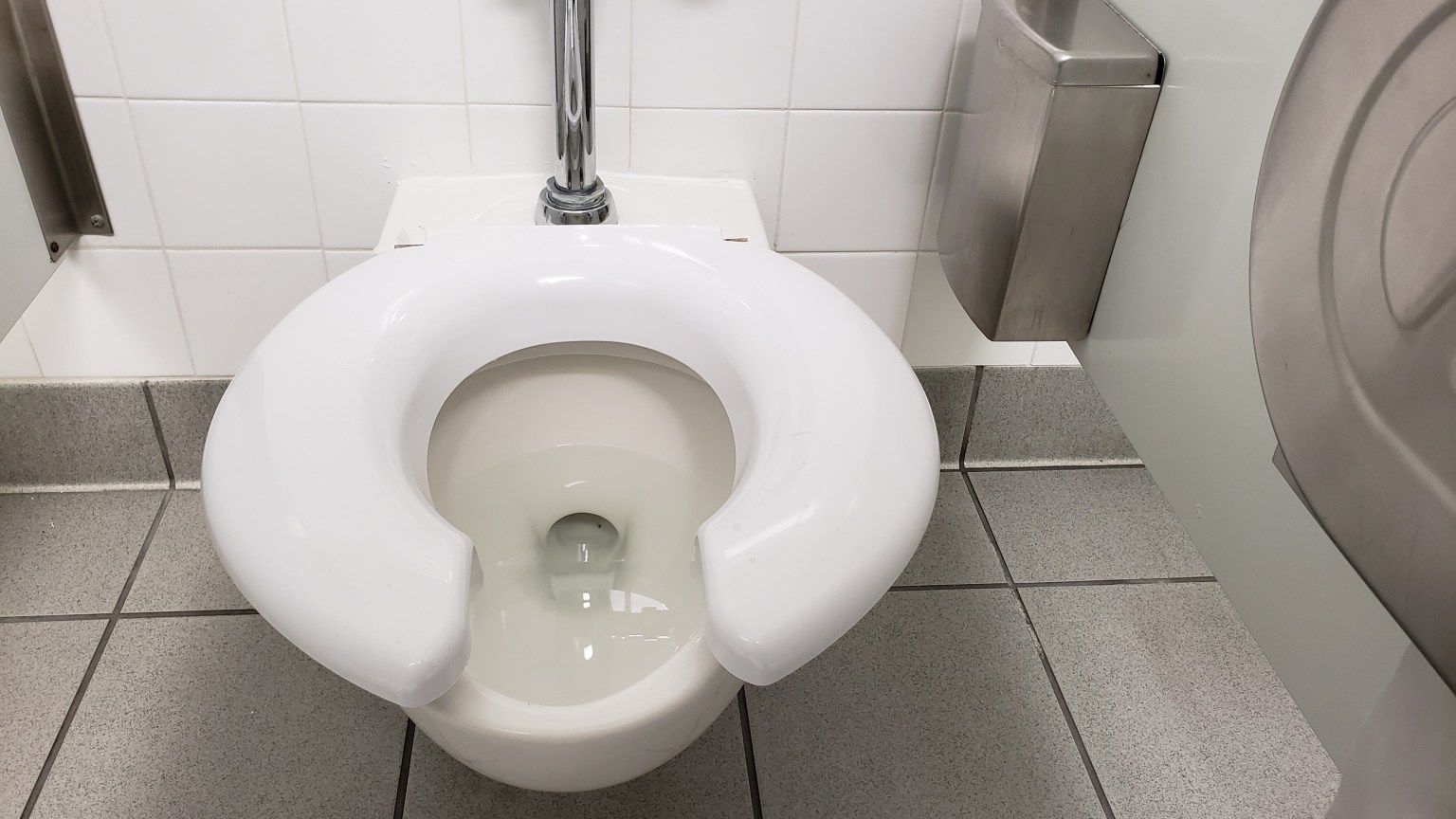Don't worry. The photo is of some AMAZING homemade, gluten-free fried chicken. Not… something else (💩)! But unfortunately, sometimes when poop stays inside our bodies for too long, poop dries, hardens, and takes the shapes of balls - as small as golf balls, and as large as softballs or grapefruit! (Yes, I've seen both of those examples).
When you hear the word "constipated," what do you think of? Someone on the toilet pushing and pushing, trying with all their might to get poop into the toilet? Red face? Grunting? Belly pain?
The thing is, there really isn't one definition of what constipation looks like. Yes, there is the 'typical' presentation, but just because there is a norm, doesn't mean that your child will fall into that category!
Challenge: replace the word "constipation" with "insufficient/incomplete evacuation of stool."
So what are things you can look for that might indicate constipation?
Frequency of bowel movements (BMs). Typically, three BMs per day to once every 3 days is considered "normal." But consider this; if someone (ahem, me) typically has a bowel movement daily in the mornings - however for some reason misses that BM - there is a high likelihood that they (me) will go later that day, and if I don't, I'm a bit uncomfortable later that day. My "normal" is 1-2 BMs/day. If suddenly I started going once every 3 days, you would think that something is going on in my body, right? My "normal" is different than your "normal." It works in the other direction too. Just because someone has a BM daily, doesn't mean that they don't need to have more BMs. I have treated kiddos that have BMs daily, but that frequency (or volume of the BM) isn't adequate for them. And so, even though they are having daily BMs, they can still be labeled as constipated due to the fact that they had stool still inside their rectum and colon ready to evacuate, that built up, and caused other symptoms - EVEN THOUGH they had daily BMs. So ultimately, frequency alone cannot be used to classify someone as 'constipated' or not.
Mechanics used to evacuate stool. Straining, holding your breath, using various positions, bracing yourself, or struggling to any degree - all are part of constipation. The severity of these things may vary, or they may not be present at all. However, any of these mechanics used to have a BM can indicate constipation to some degree.
Behaviors related to toileting. Sometimes the negative behaviors related to toileted happen first, and then constipation occurs as a result. Sometimes, the opposite is true, and the constipation occurs first, and because of it, a kiddo develops negative emotions and behaviors related to toileting. Whichever situation occurred, the behaviors are often (thought not always) a sign of constipation. Some behaviors can include: disliking the restroom in general (example: a child doesn't like being in the room itself), avoiding or refusing to toilet at all (example: will only void (pee) or have a BM in a pull-up or their underwear), will only have BMs in a certain room, position, or location (example: won't have a BM at Grandma's house). There can be many other types of behaviors and habits that develop due to poor toileting habits, and often indicate the current presence of constipation, or a history of it.
Other symptoms throughout the body. When stool gets backed up in the rectum and into the colon, something called megacolon can occur. If there is so much stool (that is NOT meant to be there), the body does its best to accommodate and tolerate it. Pain can occur, and with this, belly guarding (meaning too much abdominal muscular activation, used to brace against the pain and excess stool). This can lead to or contribute to delayed development, especially in infants and little ones who are just learning their skills. Headache, decreased appetite, slow/poor weight gain in children, bloating, fatigue, brain fog - in my opinion, an excess of stool can lead to systemic symptoms (systemic - meaning not just related to the gut, but located anywhere in the body). There has been quite the discussion in recent years in the medical community related to the microbiome, gut health, and the GI system as "the second brain" in our bodies. Based on what I've seen in the kids and families that I've treated, I completely see a relationship between systemic symptoms and the resolution of constipation. When constipation is addressed, these other systemic symptoms often improve or completely resolve.
Constipation can be confusing. Diet, emotional health, social history (family dynamics), exercise, psychological components, genetics, potty training, obesity - all can contribute to, or possibly even directly create, a situation of constipation. There are SO MANY dimensions that contribute to constipation; this is why treatment of constipation needs to be more than one dimensional. An over the counter medication may help, but likely won't resolve constipation, because of how many factors play into it.
Literature and research tells us some alarming facts. Through epidemiologic research, functional constipation is present in 0.7%-29% of children worldwide. With the potential for numbers to continue to rise, and little understanding of how exactly to best treat functional constipation, there is a tremendous need to address this growing health concern. This is why I'm dedicated to help families approach their struggles with toileting and bowel health concerns from a unique perspective, because honestly - acknowledging the various factors that contribute to constipation, is the only way someone will be able to indefinitely defeat their constipation.
What other symptoms do you think are often present with constipation? Is there a possibility that your family has systemic symptoms like headache, bellyache, poor appetite - that might be rooted in constipation? If you replace the word "constipation" with "insufficient evacuation of stool," does that change your perspective?
Related Posts










